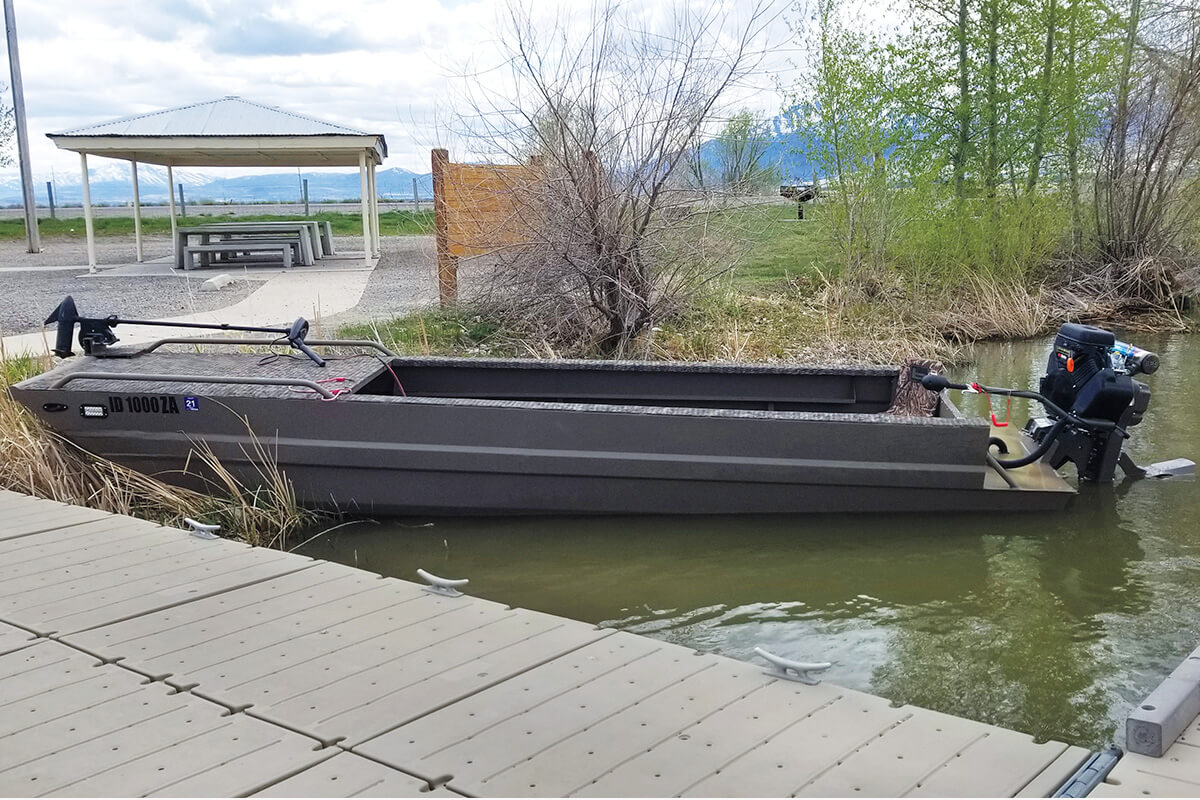How to Choose the Right Materials for Your Hybrid Duck Boat

How to Choose the Right Materials for Your Hybrid Duck Boat
Crafting a hybrid duck boat demands careful consideration of materials, as they dictate the vessel's performance, longevity, and overall functionality. Striking the right balance between durability, weight, and cost is crucial. This guide delves into essential materials and their pros and cons, equipping you with the knowledge to make informed choices for your duck boat.
Hull Construction: The Foundation of Your Duck Boat
The hull is the backbone of your duck boat, bearing the brunt of water and weather. Several materials excel in this role, each with its unique characteristics:
Aluminum
Aluminum is a popular choice for duck boat hulls. Its lightweight nature enhances maneuverability and reduces strain on the motor. Moreover, aluminum is highly corrosion-resistant, ensuring long-lasting performance in harsh aquatic environments. However, it can be prone to denting, demanding careful handling.
Fiberglass
Fiberglass offers exceptional strength and durability, making it ideal for demanding hunting conditions. Its smooth surface minimizes water resistance, contributing to efficient gliding. Fiberglass also allows for greater customization in hull design. However, it's heavier than aluminum, potentially impacting speed and maneuverability.
Polyethylene
Polyethylene, known for its robust nature, is a cost-effective alternative for duck boat hulls. It's highly impact-resistant and impervious to corrosion, making it an excellent choice for rough terrain. However, polyethylene can be heavier than other materials, potentially hindering performance.
Deck and Seating: Comfort and Functionality
The deck and seating of your duck boat significantly influence your hunting experience. Here are materials that prioritize comfort, durability, and practicality:
Wood
Wood, particularly marine-grade plywood, is a traditional material for duck boat decks. It's lightweight, sturdy, and readily customizable. However, wood requires proper maintenance to prevent rot and decay, making it a higher-maintenance option.
Aluminum
Aluminum decks offer a durable and corrosion-resistant solution. Their lightweight nature adds to the boat's overall maneuverability. However, aluminum can become slippery when wet, potentially compromising safety.
Fiberglass
Fiberglass decks provide exceptional strength and durability. Their smooth surface minimizes water resistance, enhancing overall performance. However, fiberglass can be more challenging to repair if damaged.
Accessories and Components: Enhancing Performance and Comfort
Various accessories and components enhance the functionality and comfort of your duck boat. Choose materials that withstand the elements and fulfill specific needs:
Seats and Cushions
Consider comfortable and durable seating materials like high-density foam or marine-grade vinyl. These materials resist moisture and provide long-lasting support, ensuring enjoyable hunting experiences.
Storage and Organization
Utilize durable and waterproof materials like marine-grade PVC or nylon for storage compartments and organization systems. These materials withstand moisture and protect gear from the elements.
Hardware and Fasteners
Opt for marine-grade stainless steel hardware and fasteners. Their corrosion resistance ensures long-lasting performance in saltwater environments, minimizing maintenance needs.
Conclusion: Choosing the Right Materials for Your Duck Boat
Choosing the right materials for your hybrid duck boat involves considering your budget, hunting style, and desired features. By carefully weighing the pros and cons of each material, you can build a vessel that meets your needs and enhances your duck hunting adventures. Remember, proper maintenance is crucial for extending the lifespan of your boat and maximizing its performance.
0 comments:
Post a Comment
Note: Only a member of this blog may post a comment.